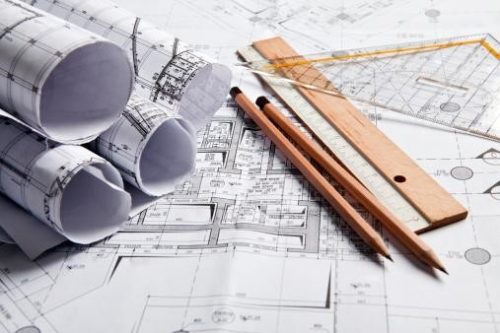Engineering is a colossal field.
With the many types of engineering courses you can choose from, how would you know the right one for you? Each course focuses on different discipline and at this point, you should know what you're curious and passionate about. What gets your adrenaline running?
Below are most common programs being offered in top engineering schools in Manila, together with a brief overview for each course. Read on and who knows, you might find your calling in this article.
Civil Engineering
Dreaming of having a building in New York City where you can actually say "Hey, I built that!" If yes, then perhaps you should be a civil engineer. Civil Engineering is possibly the oldest yet most popular engineering discipline. It deals with designing and building infrastructure projects like bridges, subways, tunnels, high-rise buildings and many more. It is an exciting profession because at the end of every project, you and the people around you could already see what you have worked hard for.
Take this course if:
- You prefer to focus on one big, long-term projects over small frequent tasks
- You are interested in designing and developing buildings
- You like solving problems, interested in math, mechanics, physics, hydraulics, geotechnics, and the like.
Mechanical Engineering
As a kid, we were all fascinated by robots, race cars, airplanes, and even our mom's hair dryer. And some of us took this fascination and curiosity to adulthood. So if you are one of those people dreaming to build their own machine, be part of the developing team for race cars or want to be like Tony Stark, then this course is for you. Mechanical engineering deals with designing, construction, robotics, energy, and technical drawing. It's one of the broadest field of engineering.
Take this course if:
- You would like to invent robots, gadgets, and other mechanical devices.
- You are interested in creating new and disruptive inventions.
- You would like to improve mechanical technologies and innovate solutions to global problems.
Computer Engineering
Computer Engineering (CpE) blends with Computer Science (CS) and Electrical Engineering (EE). Unlike CS which focuses on software, CpE focuses on both hardware and software, ensuring the two are working properly. It deals with innovating computer systems, making it safer and faster; and since machines also deals with software, there are many career options for computer engineers – from robotics to aircraft and other technological devices.
Take this course if:
- You are interested to work with computers and would like to be a software developer or hardware engineer.
- You are highly interested on learning how computers work and operate.
- You like to produce new products and systems.
Electrical Engineering
Electrical engineering deals with electrical power. It designs and develops electrical systems, thus providing you endless job opportunities. An electronics engineer is almost the same as an electrical engineer, the difference is that electrical engineers works with a larger scale of electrical systems.
Take this course if:
- You are fascinated about electricity
- You are interested to know how electrical devices and systems operate.
- You want to set up and improve electrical systems and technological developments.
The best thing about these courses is that they offer strong career path in the future. Keep in mind that the most important factor in choosing an engineering course is where you are most interested about. When you are interested in a subject, you will generate more ideas and innovate more.
Choose wisely and good luck, future engineers!

